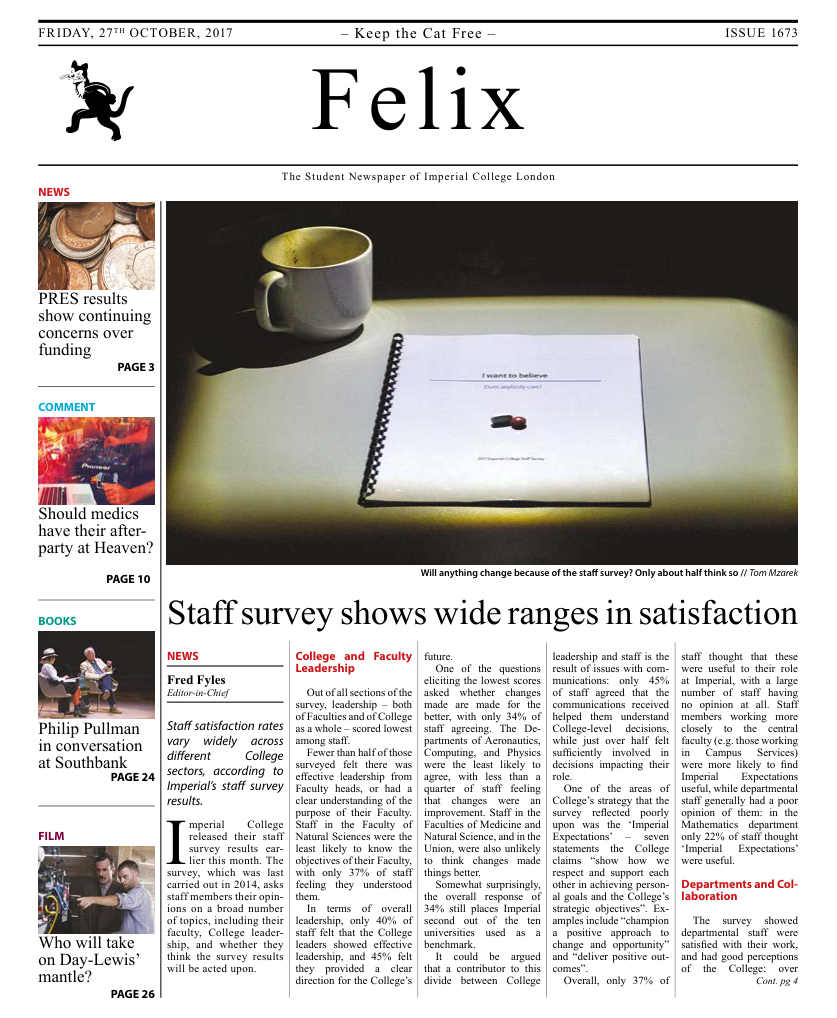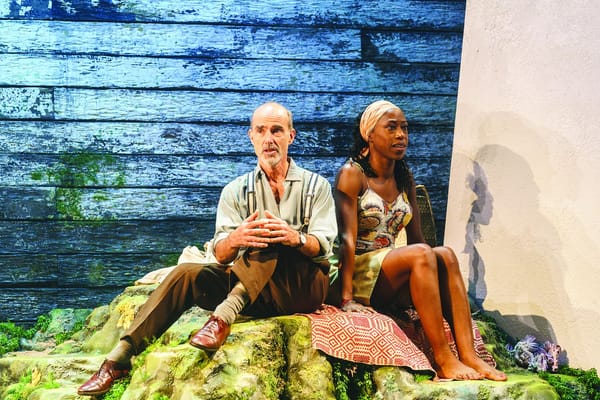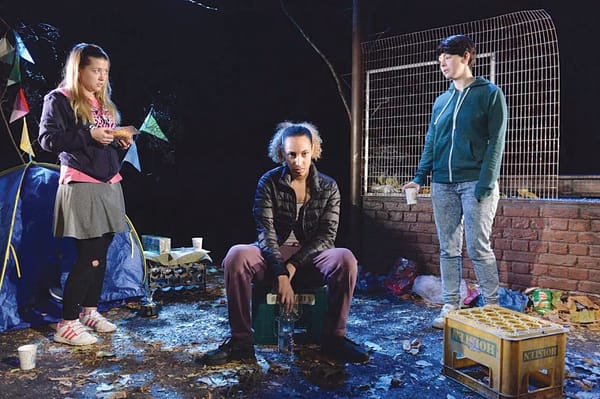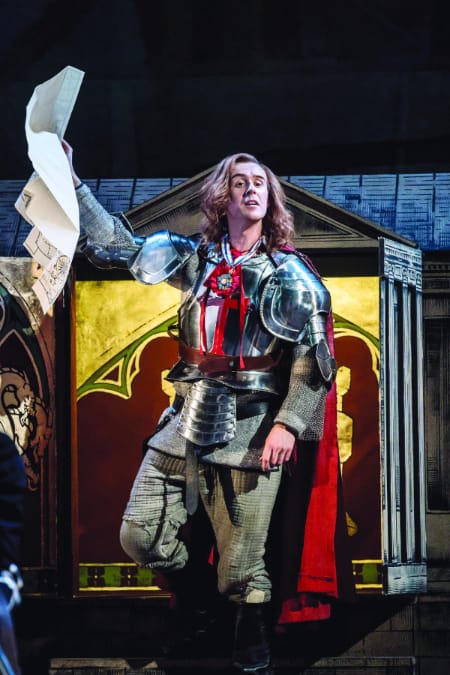Clash of Cultures: IC Radio
Can the arts thrive in the science dominated campus of Imperial?

In the second instalment of the series, IC Radio Station Manager Sebastian Gonzato sat down with Arts Editor (and former IC Radio Station Manager) Adam Gellatly, to discuss the role radio has to play in the arts at Imperial.
Adam: Can you describe what being involved in radio entails, what artistic aspects of radio are you interested in, and how long you have been involved in those?
Sebastian: It’s funny you’re interested in the arts because apart from music I’m not particularly artistically inclined, I’m more involved in the technical aspect. But, of course, in IC Radio the main service we provide is the ability to present shows. If you’re presenting a show you’re doing it to entertain, relay information, or get people interested in a particular genre of music.
A: You say you’re not artistic, but you’re very into DJ’ing, which is definitely an art-form.
S: Yeah, I DJ on IC Radio. My show is called Record Surgery because I think there’s something quite beautiful about DJ’ing with vinyl. But personally, I wouldn’t call DJ’ing an art form, because it’s so simple now. The basic idea of DJ’ing is to match BPMs – the speed of songs – in order to mix one song into the other and new software makes that super easy. I’ll probably piss of the whole of Music Tech Society by saying that. I will admit that the difference between a good and bad DJ is song selection, and you’ll find people who wax lyrical about how you should take the listener on a journey. Sometimes you hear that well done, but ninety-five percent of the time people fail at that. People think “I’m a DJ, I need to play bangers all the time”, or “I’m a tech-house DJ and I need to play boring shit for two hours straight”. There’s an old DJ Marky jungle mix that’s really good at taking you on that journey through the historical progression of that genre. At Imperial, I like the variety of the music Debesh Mandal plays on his show (The Big Daddy Hour) and I admire the fact that he uses vinyl.
A: Through running the society and hanging out in the West Basement you definitely spend a lot of time with artsy people, even if you don’t consider yourself one. Do you think Imperial students perform well at balancing their academic lives in science and their artistic side?
S: One thing that I notice is even though we have a lot of work, as Imperial students we all have quite high ambitions. Most of us, if we try to do something, we try to do it really well. For example, Joseph O’Connell, the photographer for Felix, has been a professional since before university and some of the DramSoc people are really good despite studying, say, Materials. Nothing I have learnt studying Chemical Engineering has ever helped me with Radio: there’s no plumbing in Radio. I find it interesting that despite being such a technical university there’s so many artsy types. I see it particularly in those who study Physics and Maths – maybe because they’re such pure sciences – that they’re just attracted to learning in all forms. I was reading a Feynman quote where he said, “Physics is a bit like sex: sure, it may give some practical results, but that’s not why we do it”. No engineer would ever be that poetic.
A: Is your interest in radio and DJ’ing purely a hobby for you, or do you see either of them as a future career? And if the latter, why are you studying Chemical Engineering at all?
S: I flirted with the idea of studying Sound Engineering at university; I was really into music production before I came to university. I read a lot about the basic maths of sound, so I knew about Fourier series, for example, before I came to university. But I wanted to learn more about why the world works. You can learn about radio, or history, or politics in your own time and understand it. But engineering and maths are too complicated to simply pick up a textbook and understand. I don’t think I’ll ever go into radio or media as a job, but I plan on continuing with radio as a hobby once I leave university. One of my heroes is Ben Goldacre: he’s a physician but he’s also a journalist, and wrote the books Bad Science and Bad Pharma. If I could plan out my life, I’d do the same: have a technical job, but also let the world know what your work entails by going on radio, or writing articles. I think science communication is important, but I find the science itself too interesting to focus solely on the communication.
A: What sort of job are you looking to go into?
S: My criteria for a future career is that it must have some positive impact on the world. I wouldn’t want to go into research as I find it too abstract, but working in something like renewable energy would fulfil that goal.
A: At, for example, the University of Westminster there’s a full-time Radio Production course. At Imperial, we have no undergraduates who study radio. Do you think the quality of IC Radio’s output suffers as a result?
S: I think if we had a radio or general media course we could do a lot more. But, despite that, all media at Imperial is really active. Definitely on the tech side we’re really good, compared to other universities. I did a year abroad in Switzerland last year – the radio studio there was not as good as IC Radio’s and they had a lot more technical issues. But in Switzerland they had students studying journalism for whom radio was a career path and not a hobby, so they spent a lot more time in the studio compared to Imperial students.
A: If you had to choose to be a part of only IC Radio or your station in Switzerland which would you pick?
S: IC Radio for sure. I’ve developed an irrational attachment to this station, which is probably a bit unhealthy. But I’d love if we had a sofa or a fridge in the studio here like they did in Switzerland.
A: Compared to other arts and media societies at Imperial, it seems like IC Radio reaches a much smaller audience. If radio is about entertaining but your audience is very small, why are people attracted to the club?
S: For a start, it’s entertaining for you, the host. I’ve done shows with only three listeners and it’s been fun to just play tunes. You also learn a lot. If you listen back to yourself you find you have a lot of verbal ticks. And you also learn to plan what you’re going to say and how to finish a point without tailing off.
A: Last year it seemed like IC Radio was split into three distinct groups: the traditional group who produce their own shows weekly, the Science Communication students who do radio as part of the course, and those in Music Tech who are slowly taking over as the largest demographic. Do you think IC Radio – and radio as an art – has lost its identity and ability to survive on its own merits?
S: The big thing that’s changed since 1975 (when IC Radio was founded) and now is that no one listens to the radio anymore, whereas DJ’ing is now huge. But I think radio is very good in allowing people to train their presenting and play their music. Music will still exist, mics will still exist, recording will still exist, even if radio as a medium for entertainment and disseminating information won’t.
The full and unedited version of this interview can be found online, at the ICRadioPodcast Mixcloud page








